Special Report
Sedition Congress Members Who Received the Most Funds From Business and Industry PACS
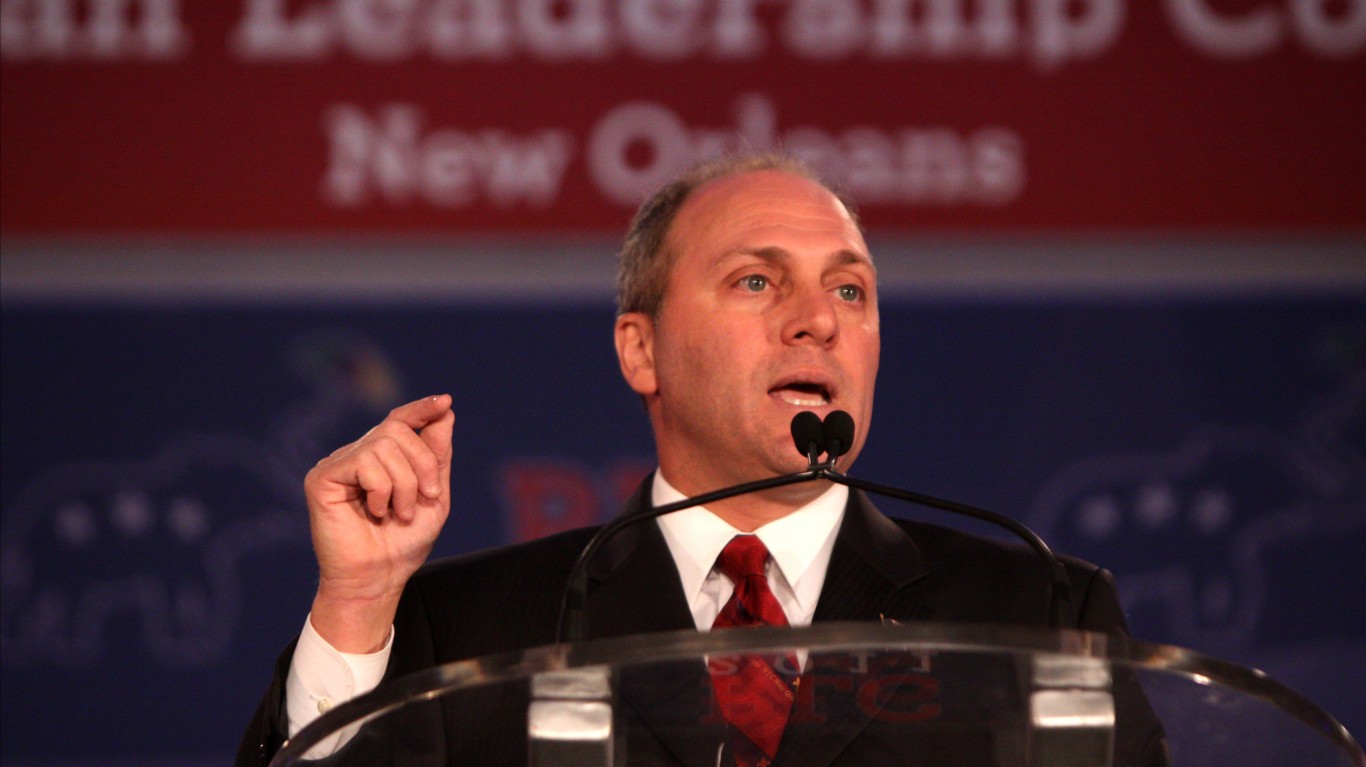
Published:

It’s been 11 years since the landmark U.S. Supreme Court decision in Citizens United v. Federal Election Commission, allowing corporations and other outside groups to spend unlimited funds on elections.
Since then, candidates from both parties have raked in enormous amounts of cash from political action committees representing a wide range of private and corporate interests, from car dealership advocates to Walmart. (These 46 Democrats have made a career out of serving in the House of Representatives.)
Companies mostly contribute to politicians to maintain their interests, but after the Jan. 6 Capitol riot and the following votes in the Senate and the House, many have announced they would halt donations to lawmakers who voted against certifying the 2020 presidential election.
There were 147 members of Congress, including eight senators, who, in an effort to overturn the election in favor of President Donald Trump, voted to sustain objections to the electoral vote counts in Arizona and Pennsylvania — states that President Joe Biden won in the Nov. 3, 2020 presidential election.
However, despite their pledge there appears to have been virtually no effect on the corporate financial backing of these lawmakers. Many of these so-called “Sedition Caucus” GOP lawmakers continued to receive business PAC money linked to well-known corporations like General Motors, Boeing, United Parcel Service, and Pfizer. (These 44 Republicans have made a career out of serving in the House of Representatives.)
In fact, according to research by the nonpartisan nonprofit group Citizens for Responsibility and Ethics in Washington, or CREW, 137 of these 147 lawmakers have received $8.5 million in donations from 351 corporations and industry group PACs, as of Aug. 20. Of course, some have received far more contributions than others.
To determine the 10 “Sedition Caucus” representatives and senators who received the highest combined total contributions to their leadership PAC and election campaign from business and industry PACs, 24/7 Wall St. reviewed the CREW research, updated as of Aug. 20. Information on lawmakers’ money sources (by industry) came from OpenSecrets. Business PACs and company names came from the FEC.
Click here to see the congress members who received the most funds from business and industry PACS.
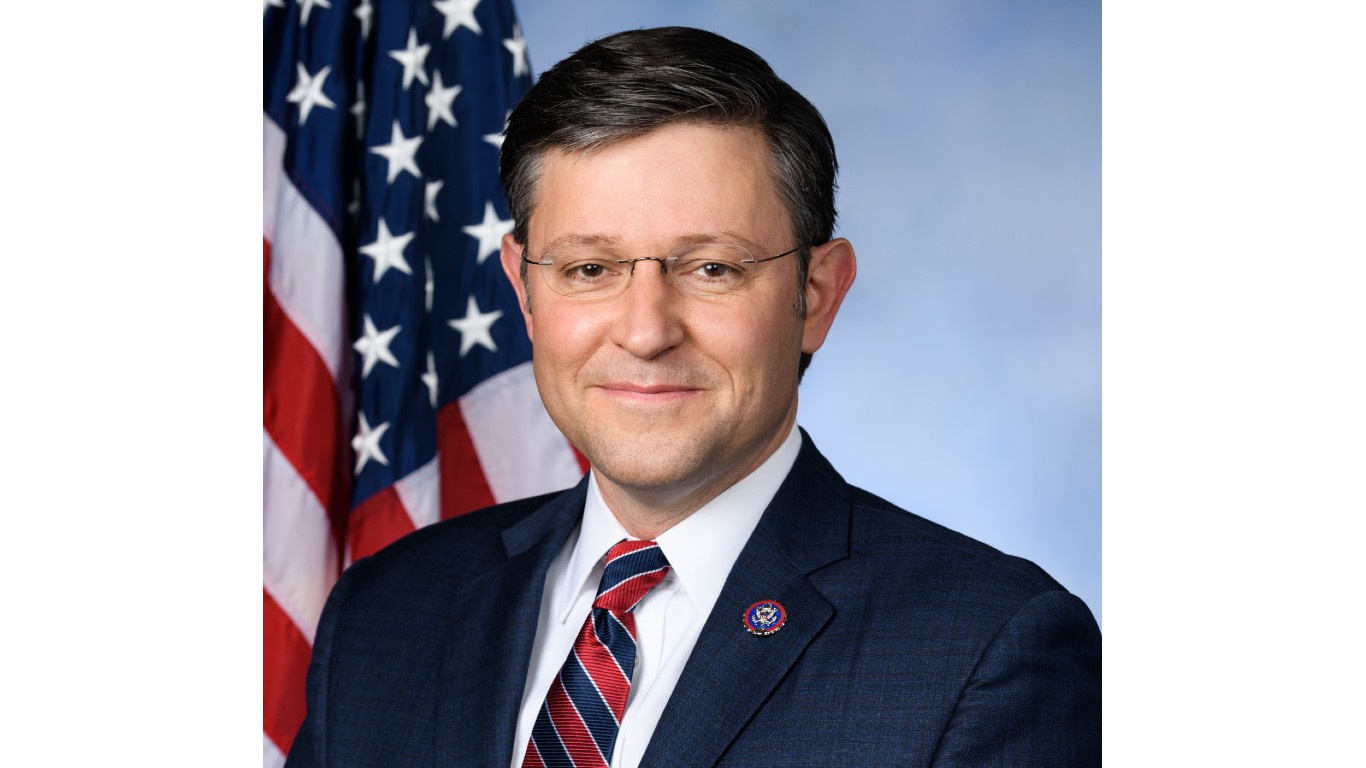
10. Rep. Mike Johnson
> Total contributions: $83,500
> Donor companies and industry groups: 22
Rep. Mike Johnson has served Louisiana’s eastern 4th congressional district since 2017 and voted to object to Electoral College votes in both Arizona and Pennsylvania in an effort to overturn the election in favor of Trump. Top industries supporting Johnson include law firms and oil and gas interests. Since the Jan. 6 Capitol riot, the sources of Johnson’s business PAC money include but aren’t limited to Lockheed Martin, Cheniere Energy, and Koch Industries.
[in-text-ad]
9. Sen. John Kennedy
> Total contributions: $89,900
> Donor companies and industry groups: 31
This junior senator from Louisiana attracts donations from law firms, real estate interests and energy companies. He’s one of six senators who voted on Jan. 6 to sustain the objection to the Electoral College results in Arizona in an effort to overturn the presidential election results. Since the Jan. 6 Capitol riot, the sources of Sen. John Kennedy’s business PAC money include but aren’t limited to Lockheed Martin, Koch Industries, and IBC Bank.
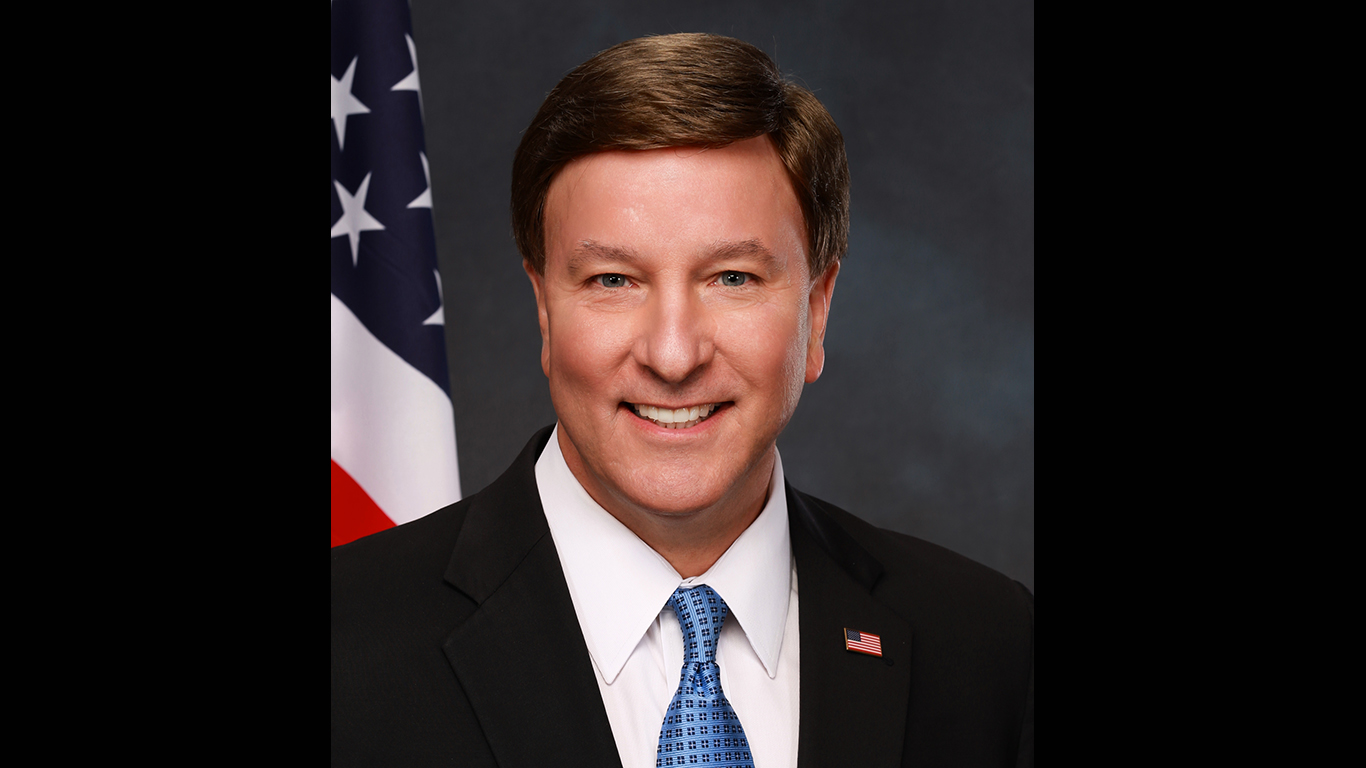
8. Rep. Mike D Rogers
> Total contributions: $93,500
> Donor companies and industry groups: 26
Rep. Mike Rogers has represented Alabama’s eastern 3rd congressional district since 2003 and attracts most of his money from lobbyists and the defense industry. Rogers would likely become the chair of the House Armed Services Committee if he wins re-election and his party takes control of the House after the 2022 midterms. Since the Jan. 6 Capitol riot, the sources of Rogers’ business PAC money include but aren’t limited to SpaceX, General Dynamics, and Rolls-Royce of North America.
7. Rep. Vicky Hartzler
> Total contributions: $108,000
> Donor companies and industry groups: 30
Representing the 4th congressional district of central and western Missouri since 2011, Rep. Vicky Hartzler is financially backed by agricultural producers and real estate interests. Hartzler announced this summer her intention to run for the Senate in the seat vacated by retiring Sen. Roy Blunt. Hartzler has a PAC for her Senate bid. Since the Jan. 6 Capitol riot, the sources of business PAC money to support her Senate campaign include but aren’t limited to Boeing, Northrop Grumman, and Rolls-Royce of North America.
[in-text-ad-2]
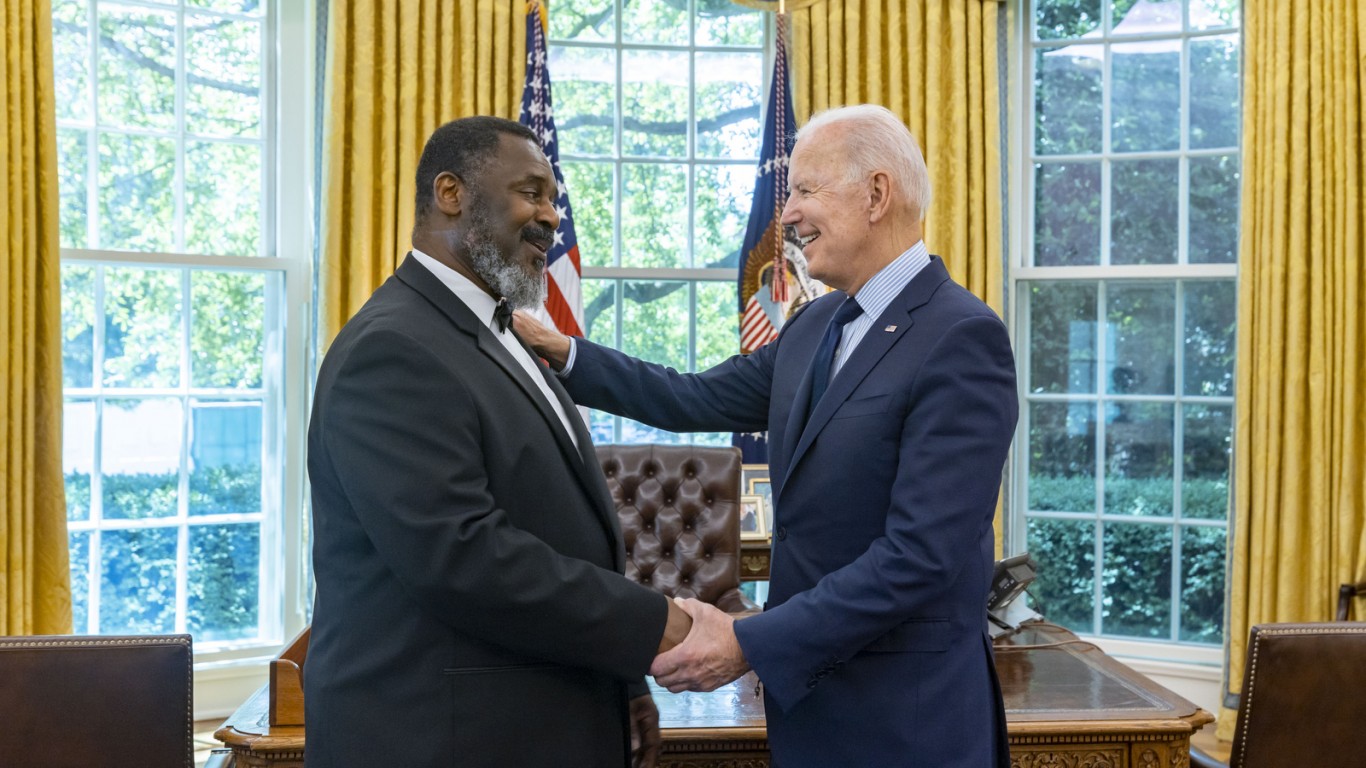
6. Rep. Buddy Carter
> Total contributions: $109,250
> Donor companies and industry groups: 36
Representing Georgia’s southeastern 1st congressional district since 2015, Rep. Buddy Carter draws most of his financial support from the health care industry, retailers, and agricultural producers. Since the Jan. 6 Capitol riot, the sources of Carter’s business PAC money include but aren’t limited to United Parcel Service, GlaxoSmithKline, and General Motors.

5. Rep. Sam Graves
> Total contributions: $110,500
> Donor companies and industry groups: 34
Serving Missouri’s 6th congressional district, which includes part of Kansas City, Rep. Sam Graves joined five Missouri Republican House members and Missouri Sen. Josh Hawley in objecting to Pennsylvania’s Electoral College votes a day after the Jan. 6 Capitol riot. Graves is supported by the air transport, trucking, and railroad industries. Since the Jan. 6 Capitol riot, the sources of Graves’ business PAC money include but aren’t limited to General Motors, American Airlines, and General Dynamics.
[in-text-ad]
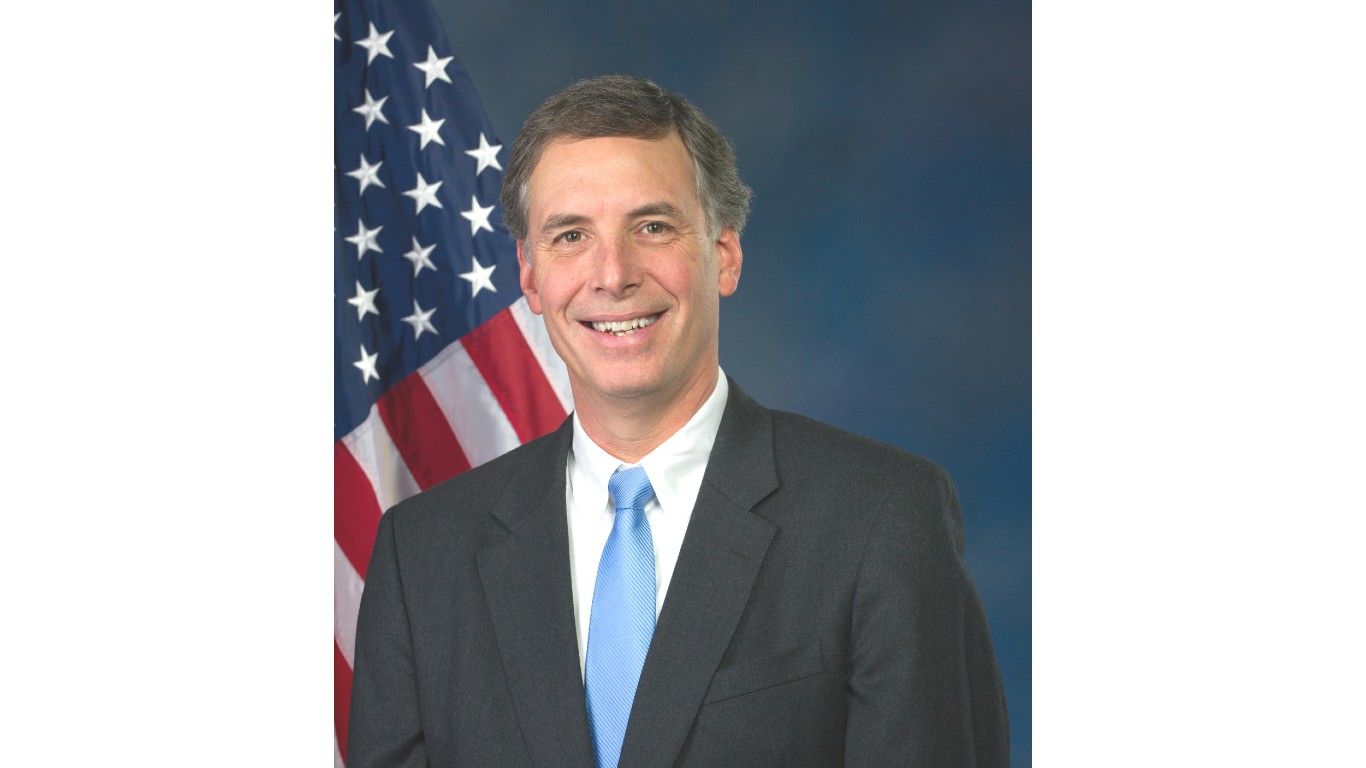
4. Rep. Tom Rice
> Total contributions: $116,100
> Donor companies and industry groups: 37
Rep. Tom Rice has served South Carolina’s 7th congressional district in the northeastern part of the state since 2013. He was one of 10 Republicans who voted to impeach Trump on Jan. 13, accusing him of dictatorial behavior. But days earlier, Rice had voted to object to Electoral College votes in Arizona and Pennsylvania. Rice’s top backers include securities traders, lawyers, and real estate interests. Since the Jan. 6 Capitol riot, the sources of Rep. Rice’s business PAC money include but aren’t limited to Ford, Boeing, and Pfizer.
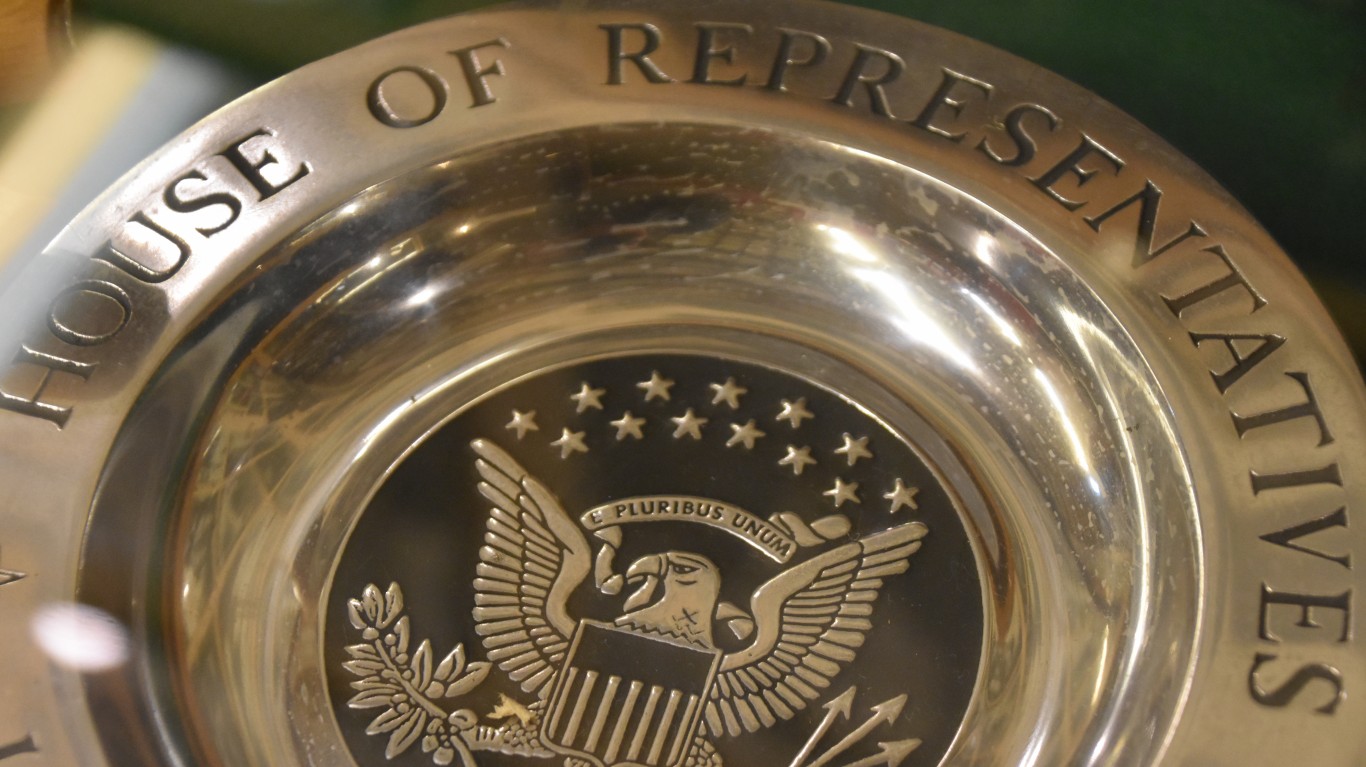 24/7 Wall St.
24/7 Wall St.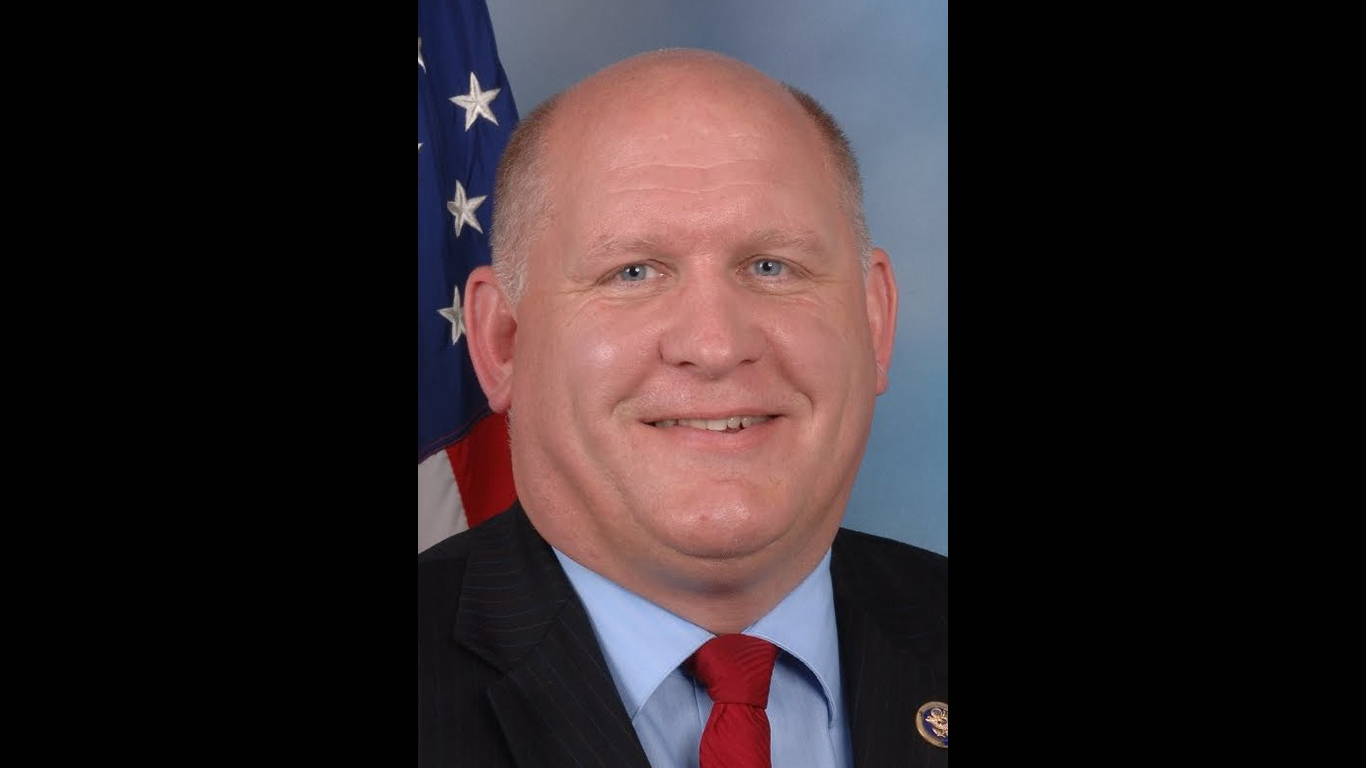
3. Rep. Glenn Thompson
> Total contributions: $124,495
> Donor companies and industry groups: 33
Rep. Glenn Thompson, who has represented Pennsylvania since 2009, joined his colleague from Pennsylvania Rep. Fred Keller in attempting to toss out the Electoral College vote from his own state a day after the Jan. 6 Capitol riot. His biggest business backers include agricultural interests and insurers. Since Jan. 6, the sources of Thompson’s business PAC money include but aren’t limited to Anheuser-Busch, Lockheed Martin, and investment manager State Street Advisors.
2. Rep. Steve Scalise
> Total contributions: $158,500
> Donor companies and industry groups: 26
First elected to the House in 2008, Rep. Steve Scalise of the 1st congressional district in southern Louisiana and House minority whip attracts donations from the health care industry, the energy sector, and real estate concerns. Since the Jan. 6 Capitol riot, the sources of Scalise’s business PAC money include but aren’t limited to Chevron, United Health, and Raytheon.
[in-text-ad-2]
1. Rep. Kevin McCarthy
> Total contributions: $215,000
> Donor companies and industry groups: 33
House Minority Leader Kevin McCarthy from California’s central 23rd district has been in the House since 2007. If Republicans sweep House elections next year, he would likely replace Nancy Pelosi as speaker. McCarthy attracts money from the oil and gas industry, real estate interests, and securities traders. Since the Jan. 6 Capitol riot, the sources of Rep. McCarthy’s business PAC money include but aren’t limited to Boeing, Occidental Petroleum, and Merck & Co.
Credit card companies are at war. The biggest issuers are handing out free rewards and benefits to win the best customers.
It’s possible to find cards paying unlimited 1.5%, 2%, and even more today. That’s free money for qualified borrowers, and the type of thing that would be crazy to pass up. Those rewards can add up to thousands of dollars every year in free money, and include other benefits as well.
We’ve assembled some of the best credit cards for users today. Don’t miss these offers because they won’t be this good forever.
Flywheel Publishing has partnered with CardRatings for our coverage of credit card products. Flywheel Publishing and CardRatings may receive a commission from card issuers.
Thank you for reading! Have some feedback for us?
Contact the 24/7 Wall St. editorial team.